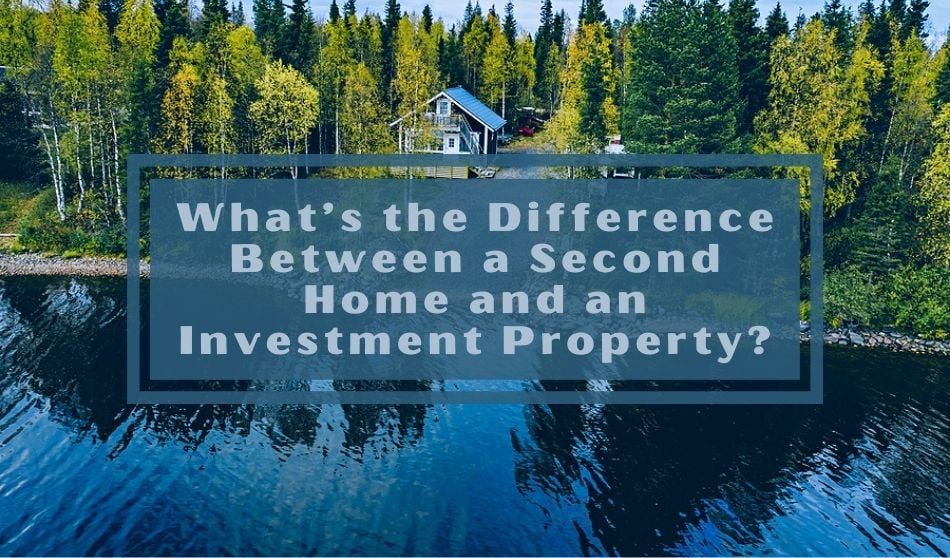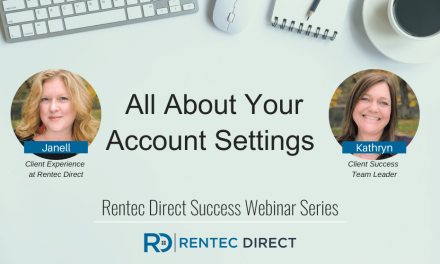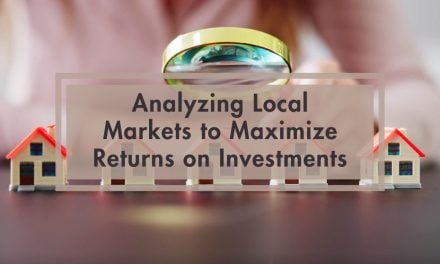Let’s say you buy a cabin on a mountain lake. You plan on keeping it for the long run, and you’d like to rent it each peak season while living there for a few months or weeks out of the year. Is this a second home, an investment property, or both? If you ask a real estate agent or a tax accountant, you’ll likely get completely different answers.
What a bank lender may consider a second home isn’t quite the same as what the IRS considers a second home, and what you consider a savvy real estate investment may not even be in the same ballpark as that of a tax pro’s definition.
The difference between a second home and an investment property might seem like semantics, but it’s actually an important distinction that could have far-reaching consequences on your bank account and your tax situation.
Let’s untangle this mess by going over the various financial implications of owning each respective property type.
SECOND HOME VS. INVESTMENT PROPERTY: THE LENDER’S PERSPECTIVE
Bank lenders strictly define the two property types. Why? Well, because the risk profile and financing for a second home is a lot different than it is for, say, a property you’re buying to put on Airbnb or rent out short-term as corporate housing or student housing.
Because a second home mortgage isn’t significantly different from a primary home mortgage — they both typically have market interest rates and identical credit and income requirements — it’s a lot easier to get a mortgage for a second home than it is for an investment property.
An investment property mortgage comes with a higher interest rate (usually half a point or more than for a primary residence), and will likely require a larger than usual down payment: up to 25%. The credit and income requirements will probably be more stringent, as well. You may also have to prove you have enough cash on hand to cover the first six months of payments, if not longer.
Lenders figure that in times of financial adversity, investors are much more willing to walk away from investment properties than their other properties. In short, investment properties are simply riskier — for the lender as well as yourself.
HOW PROPERTY TYPES AFFECT YOUR MORTGAGE
While there are no hard-and-fast lender definitions for a second home versus an investment property, some general guidelines come up a lot.
If you’re applying for a second-home mortgage, many lenders will forbid you from renting out the property. Renting it for even a couple weeks a year will render it an investment property in most lenders’ eyes. Some lenders are relaxed on this point, however, and will let you rent your second home as long as you meet certain occupancy requirements.
Many lenders also have geographical requirements for a second home — whether it’s a certain distance from your primary residence or a location near a popular vacation area. If you’re not sure whether a potential property qualifies as a second home, you can always ask your real estate agent to steer you towards a friendly lender — or at least one who can answer your questions.
That said, you can infer how a lender might define an investment property from their definition of a second home. An investment property will be rented, it may be close to your primary residence, and located in a residential, non-vacation area.
Finally, DO NOT take a shortcut and pretend your investment property is a second home. Some lenders will make unannounced visits to your property to make sure you’re using it for its stated purpose. Occupancy fraud is a serious crime, and it can give your lender the right to foreclose on your loan immediately.
SECOND HOME VS. INVESTMENT PROPERTY: THE IRS PERSPECTIVE
As you might expect, the IRS has precise definitions of a second home versus an investment property — it has major implications on your tax situation.
Second homes must be lived in for at least 14 days a year or 10% of the days you rent it, whichever figure is greater. It’s considered an investment property by default if it doesn’t meet that threshold.
Let’s say you live in your property for 14 days a year, but rent it out 200 days a year. Since 10% of 200 days is 20 days, the property is classed as an investment property. If you’d rented it for 139 days or fewer, you’d qualify as a second home.
HOW PROPERTY TYPES AFFECT YOUR TAXES
So why does it matter if the IRS considers your property to be a second home or an investment property? Well, second homes are eligible for the coveted mortgage interest tax deduction, while investment properties are not.
However, as an owner of an investment property, you have your own unique tax benefits. You can deduct your mortgage interest from your rental income as a straightforward expense. And you can claim depreciation every year, which dramatically lowers your taxable rental income. Keep in mind, though, that you’ll likely have to pay depreciation recapture when you finally sell the property.
Learn more: Tax Tips for Rental Properties – Rental Income and Deductions for Landlords
Whichever kind of property you own, you’ll want to keep a couple things in mind.
First, you have to report your rental income to the IRS — unless you’re renting a second home for fewer than 15 days a year. For both property types, you can deduct maintenance expenses from your rental income.
Second, when you’re deducting expenses from your rental income, you have to separate the time spent living in the home from time renting it. So, for example, if you rented it 25% of the year and lived in it the other 75%, you can deduct only 25% of your total maintenance expenses from your rental income.
If you decide, down the line, that you want to convert your second home to an investment rental, there are paths to do that. Just make sure you’ve occupied your second home long enough to avoid charges of mortgage fraud. As with any serious issue with your financing, always read the fine print, and consult a professional if you need clarification!






